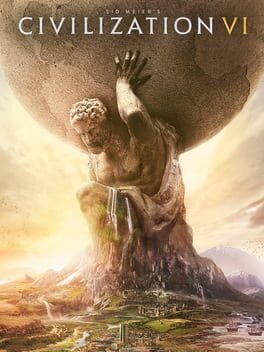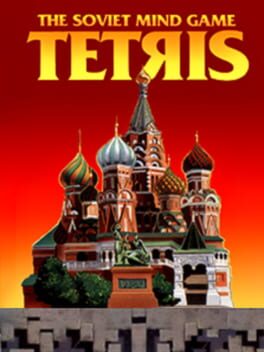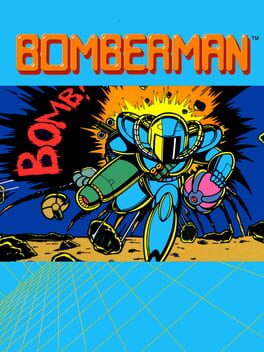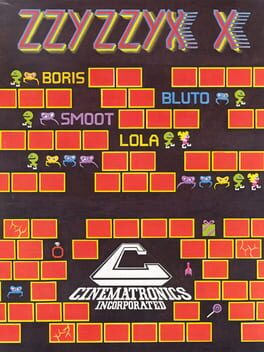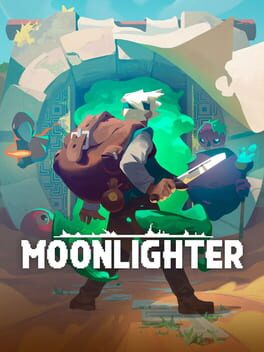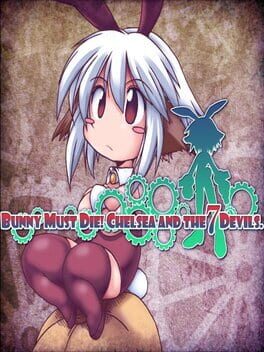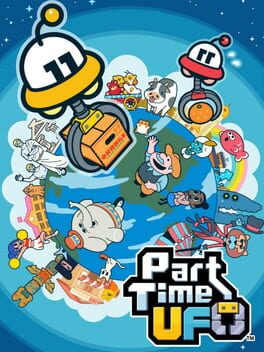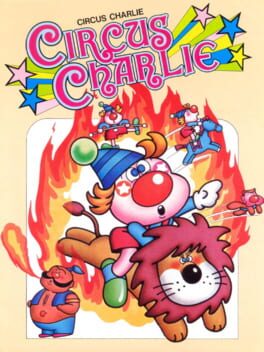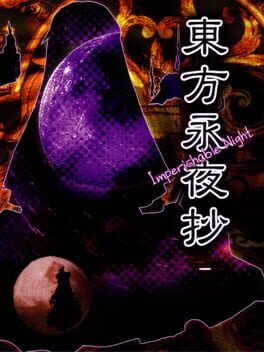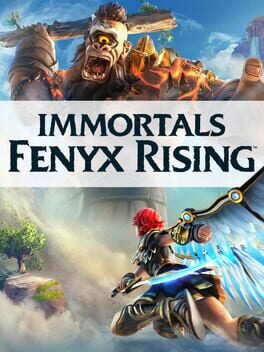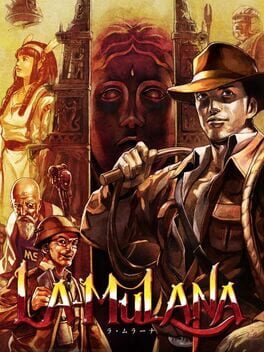noterday
I haven't been able to find the fun in this game, after the addictive nature of growing your empire loses it's novelty. On the default difficulty, I feel like I move forward like water, taking the easiest seeming choices without strategic consideration, until I get bored or win. This lack of organic learning through play makes me feel under prepared, and uninterested, in trying higher difficulties or the multiplayer. I'll try other entries someday.
2015
The game has tons of style and Alucard is pretty but I lost interest after a few sessions. I found myself bored by the many combat encounters. Much of the level design is built in service of fighting cool looking, unchallenging enemies. I much prefer the traps and puzzle-like scenarios of the earlier titles to the long combat hallways found in this game.
1989
1985
Bomberman is a slow and methodical game. I find it repetitive in an enjoyable way, even if it doesn't manage to keep my attention for every level. I wish the concept had been explored more in sequels.
It's gameplay is immediately understandable and sets up some interesting contradictions for the player. Clearing the field allows you to find power ups and the exit to each levels, but makes trapping enemies more difficult. The unpredictable enemy patterns are best managed by slowly trapping them into a corner, but the time limit on each stage forces some riskier plays to make it out in time
Accumulating power-ups speeds up the pace of the game but increases the risks of the player blowing themselves up, creating a slow but appreciable difficulty curve. I think the upgrade which makes you immune to your own explosions oversimplifies the game to the point of boredom.
The games singular music track has an interesting progression that develops near the end of the track, indicating to the player when their time is running out without being stressful or aggressing.
There is clearly room to touch up this formula into a better game with a more interesting progression. Maybe with different stage layouts or diversified enemy behavior.
It's gameplay is immediately understandable and sets up some interesting contradictions for the player. Clearing the field allows you to find power ups and the exit to each levels, but makes trapping enemies more difficult. The unpredictable enemy patterns are best managed by slowly trapping them into a corner, but the time limit on each stage forces some riskier plays to make it out in time
Accumulating power-ups speeds up the pace of the game but increases the risks of the player blowing themselves up, creating a slow but appreciable difficulty curve. I think the upgrade which makes you immune to your own explosions oversimplifies the game to the point of boredom.
The games singular music track has an interesting progression that develops near the end of the track, indicating to the player when their time is running out without being stressful or aggressing.
There is clearly room to touch up this formula into a better game with a more interesting progression. Maybe with different stage layouts or diversified enemy behavior.
1982
2007
2018
There are some standout, wild design choices in this you can only find in a passionate doujin title. Like "Walking to the right" being an optional pickup, or being able to parry deadly spikes on the floor.
Movement feel finicky at first, and bosses seem unreasonable, until you start to discover the hidden, busted possibilities of your moveset. The game-feel seems to improves alongside your own skill, as if you're learning the weird language the devs speak. There is a learning curve to some clunkier aspects of the controls at first, but nothing too bad.
I enjoyed it enough, but not so much to improve my item completion or unlock the Chelsea playthrough. Watch a speedrun of it maybe instead, those are cool to watch.
Movement feel finicky at first, and bosses seem unreasonable, until you start to discover the hidden, busted possibilities of your moveset. The game-feel seems to improves alongside your own skill, as if you're learning the weird language the devs speak. There is a learning curve to some clunkier aspects of the controls at first, but nothing too bad.
I enjoyed it enough, but not so much to improve my item completion or unlock the Chelsea playthrough. Watch a speedrun of it maybe instead, those are cool to watch.
2017
1984
Like the better games in the series, it has an obtuse but thematically flavorful scoring system. The patterns are on the slower and denser side, and sometimes feel more like puzzles than reflex challenges. The characters and songs are iconic, and the game has an amount of content we would never see again in the series.
It's a very touhou Touhou game.
It's a very touhou Touhou game.
Bounced off this game during the tutorial. I did not instinctually vibe with the character movement, and the open world revealed it's hand so quickly at its first "Ubisoft tower", where you immediately notice repeated, templated content on the map.
The uninspired take on mythology figures and grating humor seen in the intro don't make me want to give this game more of a chance, and neither does the requirement for an online account on launch, or the PC cursor optimized menus and ads for DLC. Too much modern game bullshit got in my way.
I've been told there is value to the game if you dig deeper, but I'd rather give that time and attention to less commercial games that feel like they respect me more. Which feels sad since I'm sure there's a love behind all the corporate crap.
The uninspired take on mythology figures and grating humor seen in the intro don't make me want to give this game more of a chance, and neither does the requirement for an online account on launch, or the PC cursor optimized menus and ads for DLC. Too much modern game bullshit got in my way.
I've been told there is value to the game if you dig deeper, but I'd rather give that time and attention to less commercial games that feel like they respect me more. Which feels sad since I'm sure there's a love behind all the corporate crap.
This did not live up to the reputation it has for me, but I see why it's writer managed to get the following he did. I imagine it hit harder when it came out. I'm curious to play it's sequels someday.
The pseudoscience talk is fun, and so are the puzzle sections, but the main mystery left me unsatisfied. There are some cool twists and turn, but little moves forward until you get to the very end of the game. Not sure I cared for a lot of the characters either.
The escape room segments are a highlight for me, and they reminded me a lot of flash games I played as a kid. So interesting to see that style of game be interpreted as part of a bigger narrative.
I found the presentation on DS much easier to understand than the weirdly compromised PC port, despite the DS release taking much slower to play. The writing is more legible on a dual screen setup, in its original formatting.
The pseudoscience talk is fun, and so are the puzzle sections, but the main mystery left me unsatisfied. There are some cool twists and turn, but little moves forward until you get to the very end of the game. Not sure I cared for a lot of the characters either.
The escape room segments are a highlight for me, and they reminded me a lot of flash games I played as a kid. So interesting to see that style of game be interpreted as part of a bigger narrative.
I found the presentation on DS much easier to understand than the weirdly compromised PC port, despite the DS release taking much slower to play. The writing is more legible on a dual screen setup, in its original formatting.
2012
La-Mulana is a terribly frustrating game that feels like an exercise in reaching the limits of unclear and obtuse design while maintaining a consistent internal logic. It wants to feel unfair while always having a solid justification for doing so. It's an interesting style exercise that makes the game near unplayable at times but also makes it extremely memorable.
It could be described as an early "note-taking adventure game". Titles in that genre usually try to make the player feel clever for inferring solutions to puzzles organically, which requires a very precise design to convey the right clues at the right time. Clues should lead to one another and then to rewarding discoveries, forming a graph structure that the player has fun untangling.
The La-Mulana developers seem to have tried to maximize how complex this graph of clues can be without leaving any disconnected, unfair puzzles, always leaving the tiniest breadcrumbs toward a solution. No matter how difficult a leap in logic can be, you can always connect it to a hint in the world. While you're unlikely to beat the game without outside help, even restoring to a walkthrough can be enjoyable, as trying to reverse engineer the intented path and the designer's intentions can be intellectually challenging.
It makes for a game that's often more fun to think about than it is to play. Writing down notes, collecting information and trying to piece it everything together is satisfying. The game's music and gameplay feedback are solid enough to make the play time engaging, but it's so easy to waste hours while hunting for the next crumb of progress. The platforming and combat do their job as palette cleansers between the puzzles, without standing out much.
There are times where the game disappoints later on, as the search space for puzzles increases dramatically (I found the addition of a second type of breakable wall to be too much myself). There's a few more puzzle ideas which are repeated a few too many time and loose their surprise value. The game almost crumbles under it's own weight by the end, a lock-and-key scenarios grow in complexity with the size of the map. You have to accept that you will either give up in the back half and use outside hints, or spend triple digits hours before the end.
Even so, the game manages to be successful in it's goals even if it "defeats" you, and is interesting to play even with a walk-through open. Failing to beat a game can still be an interesting experience worth having, as long as you accept that defeat as a positive experience. I think that partially explain why this game has a large fan base who experienced it mainly through old let's plays.
Solving a puzzle usually leads to a release of tension and a feeling of satisfaction. La-Mulana loves to toy with that emotion by making rewards so tiny and obtuse that they themselves become a bigger puzzle. You often get excited for finding a clever solution, only to have your excitement cut short when your reward is more confusing than the puzzle you just solved. It's a playfully sadistic game.
It feels struggling to open a package with your fingernails, and being devastated to find a smaller, more tightly packed box inside. And that feeling lasts until the last few hours of the game. There isn't a point where it feels "solved", you only get to feel like you cracked open the puzzle box once you hit the credits, or maybe later even. It never feels like you've cracked the whole thing open. You eventually come to see the game as a single entity, your antagonist to defeat, and the game's story manage to perfectly capture that with a clever late game twist. The "La-Mulana" temple as a whole is revealed to be the entity your are chasing after and need to defeat.
The puzzle box qualities of the level design make up for otherwise unsatisfying progression items. You may not get many interesting character upgrades, but it feels like the game world around you progresses and evolves as an indication of your progress. Destroyed walls, activated mechanisms and water flow all remind you of your progress. It's very satisfying and interesting, and helps sell this idea of the game world as a living being.
Even after a full playthrough, having given up and used tools about 6/8 bosses in, I struggle to piece every last detail together, and I appreciate the game as something I may return to years in the future for a refresher.
It could be described as an early "note-taking adventure game". Titles in that genre usually try to make the player feel clever for inferring solutions to puzzles organically, which requires a very precise design to convey the right clues at the right time. Clues should lead to one another and then to rewarding discoveries, forming a graph structure that the player has fun untangling.
The La-Mulana developers seem to have tried to maximize how complex this graph of clues can be without leaving any disconnected, unfair puzzles, always leaving the tiniest breadcrumbs toward a solution. No matter how difficult a leap in logic can be, you can always connect it to a hint in the world. While you're unlikely to beat the game without outside help, even restoring to a walkthrough can be enjoyable, as trying to reverse engineer the intented path and the designer's intentions can be intellectually challenging.
It makes for a game that's often more fun to think about than it is to play. Writing down notes, collecting information and trying to piece it everything together is satisfying. The game's music and gameplay feedback are solid enough to make the play time engaging, but it's so easy to waste hours while hunting for the next crumb of progress. The platforming and combat do their job as palette cleansers between the puzzles, without standing out much.
There are times where the game disappoints later on, as the search space for puzzles increases dramatically (I found the addition of a second type of breakable wall to be too much myself). There's a few more puzzle ideas which are repeated a few too many time and loose their surprise value. The game almost crumbles under it's own weight by the end, a lock-and-key scenarios grow in complexity with the size of the map. You have to accept that you will either give up in the back half and use outside hints, or spend triple digits hours before the end.
Even so, the game manages to be successful in it's goals even if it "defeats" you, and is interesting to play even with a walk-through open. Failing to beat a game can still be an interesting experience worth having, as long as you accept that defeat as a positive experience. I think that partially explain why this game has a large fan base who experienced it mainly through old let's plays.
Solving a puzzle usually leads to a release of tension and a feeling of satisfaction. La-Mulana loves to toy with that emotion by making rewards so tiny and obtuse that they themselves become a bigger puzzle. You often get excited for finding a clever solution, only to have your excitement cut short when your reward is more confusing than the puzzle you just solved. It's a playfully sadistic game.
It feels struggling to open a package with your fingernails, and being devastated to find a smaller, more tightly packed box inside. And that feeling lasts until the last few hours of the game. There isn't a point where it feels "solved", you only get to feel like you cracked open the puzzle box once you hit the credits, or maybe later even. It never feels like you've cracked the whole thing open. You eventually come to see the game as a single entity, your antagonist to defeat, and the game's story manage to perfectly capture that with a clever late game twist. The "La-Mulana" temple as a whole is revealed to be the entity your are chasing after and need to defeat.
The puzzle box qualities of the level design make up for otherwise unsatisfying progression items. You may not get many interesting character upgrades, but it feels like the game world around you progresses and evolves as an indication of your progress. Destroyed walls, activated mechanisms and water flow all remind you of your progress. It's very satisfying and interesting, and helps sell this idea of the game world as a living being.
Even after a full playthrough, having given up and used tools about 6/8 bosses in, I struggle to piece every last detail together, and I appreciate the game as something I may return to years in the future for a refresher.
